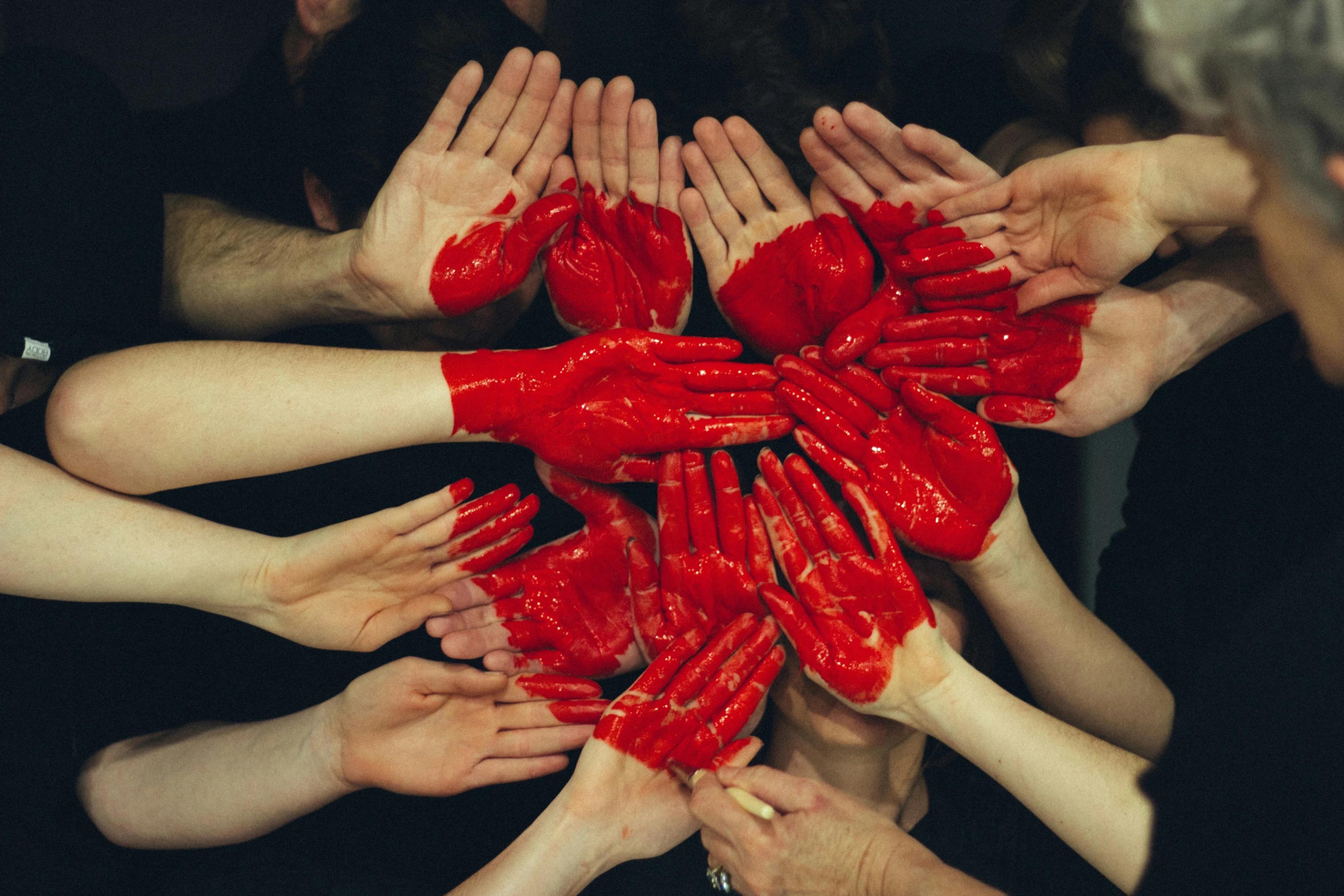Spilling the Chat GPTea ☕️
- Jessica Chapplow
- Mar 28
- 5 min read
Welcome to the first edition of the series!
Spilling The ChatGPTea is a monthly series designed to demystify artificial intelligence for enthusiasts and newcomers alike. Whether you’re a seasoned tech explorer or simply AI-curious, join us as we unpack the transformative power of this groundbreaking technology through candid conversations with global innovators.
Each month, we’ll spotlight change-makers from diverse industries and regions, shedding light on how AI is reshaping their fields. From cutting-edge opportunities to ethical challenges, our guests will share firsthand insights to help you navigate the ever-evolving AI landscape.
Edition no.1
AI for Good: How Algorithms Are Reshaping Humanitarian Work.
A conversation with Matt Thomas, Head of Strategic Insight & Foresight at The British Red Cross
"The future of humanitarian work may well be shaped by how effectively we can leverage AI to enhance our capabilities while staying true to our core principles."
In an exclusive interview, Jessica Chapplow (Founder, Heartificial Intelligence), sits down with Matt Thomas, Head of Foresight at the British Red Cross, shares his insights on the evolving role of AI in humanitarian efforts. From his unconventional career path to the ethical challenges facing the sector, Matt offers an incredibly unique perspective on the intersection of technology and humanitarian work.
Jessica: You've had a fascinating journey from computer scientist to anthropologist, and eventually, to Head of Foresight at the British Red Cross. Can you walk us through this transition?
Matt: It was a series of happy accidents, really. I started as a computer scientist, working as a software developer for a healthcare charity about 20 years ago. But I soon realised I preferred people to computers. My interest in human behaviour led me to pursue a master's in anthropology, initially with the aim of becoming a novelist. Instead, I fell in love with the field and ended up doing a PhD and postdoc, which took me to Norway's Arctic Circle to study reindeer herders. The transition back to the charity sector was driven by a desire to do more participatory work. I saw a job at the British Red Cross to be their first data scientist, and given my background in quantitative anthropology, I applied and got the job. During the pandemic, I took on more responsibilities, which eventually led to my current role as Head of Foresight.
Jessica: AI's role in crisis response isn't new, the humanitarian sector has quietly been using AI for quite some time. Can you elaborate on some of these long-standing applications?
Matt: Absolutely. Humanitarians have been leveraging AI in various ways for years.
We've used it for analysing satellite imagery in disaster and conflict zones, which is crucial for rapid response. There's also the Missing Maps project, partly run by the British Red Cross, which uses AI to classify geographical features in unmapped areas. This is incredibly valuable during crises when we need to quickly map out affected regions.AI has also been instrumental in monitoring news and social media for crisis-related information, improving humanitarian logistics and supply chain management, and even in impact-based forecasting for weather-related disasters. The American Red Cross, for instance, has developed public-facing chatbots to assist with blood donation queries, while we at the British Red Cross created an Alexa skill to teach first aid.
Jessica: How has the advent of generative AI changed the game for humanitarian organisations?
Matt: The emergence of generative AI has supercharged our potential applications. We're exploring the possibilities of what AI chatbots could do for rapid language support in crisis situations, which could be a game-changer when interpreters aren't immediately available. I also think there's untapped potential when it comes to the potentional for AI to tailor humanitarian education to individual needs—mirroring platforms like Khan Academy —remains unexplored to date, But the upside to potentially empower vulnerable communities with adaptive learning is an area that holds great promise.
AI could also play a crucial role in triage approaches during crises to ensure we're supporting people in a truly needs-based way. However, we're cautious about using AI in in-depth casework support, where human connection and self-reflection are crucial. On the operational front, AI could enhance productivity in back-office tasks like drafting grants or job postings—a shift that might democratise funding access for grassroots groups, with traditional workflows still in place. This could potentially level the playing field, allowing smaller, grassroots organisations to access funding that was historically out of reach.
Jessica: What are some of the ethical considerations that humanitarian organisations need to grapple with when it comes to AI?
Matt: There are several critical considerations. First, we need to ensure marginalised communities are not left out of AI datasets and development. Many of the people we work with are not represented in the data that feeds into large language models, which could lead to biased or ineffective AI tools.We also need to address the environmental impact of AI technologies. As an organisation that responds to climate change-induced crises, we need to consider the energy consumption and potential pollution associated with AI use.Additionally, we must ensure AI tools align with humanitarian principles like neutrality and impartiality. Recent research has shown that ChatGPT, for instance, struggles with the concept of neutrality, which is a core principle for us. There are also concerns about the potential misuse of AI-generated content, such as the unauthorised use of protected emblems like the Red Cross. We're still trying to think through the implications and what we can do to protect ourselves and work with AI developers to prevent such misuse.
"AI could help improve the curation of existing knowledge and synthesise different types of evidence and data to create new insights. "
Jessica: Looking to the future, what excites you most about the potential of AI in humanitarian work?
Matt: I'm particularly excited about using AI for knowledge curation and creation within organisations. We have vast repositories of research reports, evaluations, and data analyses that are often hard to search and utilise effectively. AI could help improve the curation of existing knowledge and synthesise different types of evidence and data to create new insights. This may not be the most glamorous application, but it could be profoundly important for enhancing our organisational knowledge and decision-making capabilities. Our colleagues at the International Federation of Red Cross and Red Crescent Societies are already exploring this, and I think it has tremendous potential.
Jessica: As we wrap up, to help the Ai curious readers out there, which areas do you wish you had more knowledge in to further your understanding of AI and its applications?
Matt: There are a few key areas. First, I wish I had a better understanding of various disciplines that contribute to our contextual and situational analyses, such as macroeconomics, infrastructure, global trade, and climate change. A deeper knowledge of history would also be beneficial, as many successful foresight practitioners come from historical backgrounds.
On the technical side, despite my computer science background, I feel I'm playing catch-up with modern AI programming techniques. I wish I had a stronger grasp of concepts like prompt engineering, machine learning ops, and LLM ops, as this could open up new and more innovative ways of using AI in our work.As AI continues to evolve, it's clear that humanitarian organisations like the British Red Cross are at the forefront of harnessing its potential while navigating complex ethical considerations.
The future of humanitarian work may well be shaped by how effectively we can leverage AI to enhance our capabilities while staying true to our core principles.
Thank you Matt for sharing such a unique perspective and for everyone taking the time to look at our first article of Spilling the ChatGPTea. We hope you found our conversation with Matt as enlightening as I did.
As we continue to "Spill the ChatGPTea," we look forward to exploring more perspectives and insights from leaders across various sectors, all working to navigate the complex landscape of AI and its implications for our future.




Tremendous insight! How interesting to hear about the ways that AI and the humanitarian sector can benefit one another.
Steven